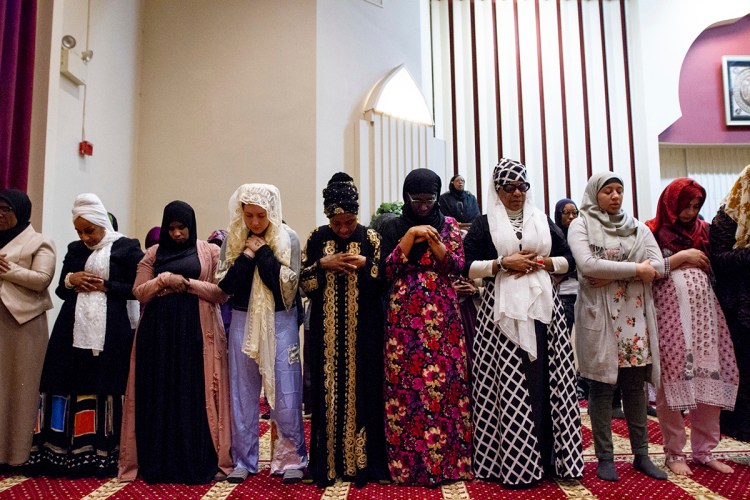As American Muslims awoke to the news Friday that 49 worshippers had been killed in a deadly coordinated attack targeting two New Zealand mosques, new ripples of fear echoed through a community that has long felt unease in the United States.
“Our houses of worship are no longer safe places,” said Wajahat Ali, a prominent Muslim writer. He’s hearing from friends fretting about how to protect their children at Friday worship, the main day of communal prayer for Muslims. “Will we have to pack and carry? Am I supposed to hold my baby in one hand and have my other hand on a pistol in my belt? This is terrifying.”
Mosques around the United States began considering what security precautions to take Friday morning, hours before their communities gather for the weekly jum’a prayer. Dar Al-Hijrah, in Falls Church, Virginia, sent an email saying it would increase security. Daria Fahmy, a professor at Long Island University, said in an email to the Post on Friday that numerous mosques contacted their local police departments to ask for protection.
“There seems to be a feeling of becoming an increasingly vulnerable community,” she wrote about American Muslims’ fear.
Muslims make up just under 1 percent of the U.S. population, according to the Pew Research Center – about half the number of Jews in the United States, somewhat less than the number of Mormons, and slightly more than the number of Hindus or Buddhists. The Muslim community has worried about its reputation in the United States at least since the Sept. 11, 2001, terrorist attacks, when some Muslim children were taunted as “terrorists” after the violent attacks by Muslim extremists. Over the past three years, since President Trump campaigned on the promise to “ban” some Muslims from entering the country and then enacted a court-challenged travel ban that bars people from some majority-Muslim countries, many have grown increasingly concerned.
“The overwhelming rise in anti-Muslim hate speech that has taken hold in our country is making the average Muslim uncertain about safety,” Fahmy wrote. Ali blamed Trump for shifting the culture, and said it’s not just aimed at Muslims – the fatal shooting of 11 worshippers in a Pittsburgh synagogue in October sprang from the same religious hate, he said.
“There’s a climate of hate that has been nurtured by the president all the way down. We saw it against Jews,” he said. “Meanwhile, we have ignored the number one threat – the rise of white extremists. There’s a cost to this rhetoric of hate. The cost is 49 people who went to Friday prayer.”
The Council on American-Islamic Relations, the largest Muslim advocacy group in the U.S., decried Friday what it described as an “unprecedented spike in bigotry … since the election of Donald Trump as president.” CAIR pointed to the manifesto written by a man who broadcast some of the violence in New Zealand in which he echoed white supremacist views and criticized Muslims and immigrants. According to CAIR, the manifesto praised Trump as “a symbol of renewed white identity and common purpose.”
The organization promoted a booklet on safety strategies for mosques.
Synagogues, which already tended to be more secured than most houses of worship because of concerns about anti-Semitic attacks, beefed up security further after the Pittsburgh shooting. Some churches did the same after fatal shootings in Charleston, South Carolina, and Sutherland Springs, Texas.
Some leaders of other religious organizations, including the Jewish groups Anti-Defamation League and Religious Action Center, Catholic bishops and a Sikh leader, pledged Friday to support Muslims as they turn toward the same task of protecting their community.
Copy the Story LinkSend questions/comments to the editors.



Success. Please wait for the page to reload. If the page does not reload within 5 seconds, please refresh the page.
Enter your email and password to access comments.
Hi, to comment on stories you must . This profile is in addition to your subscription and website login.
Already have a commenting profile? .
Invalid username/password.
Please check your email to confirm and complete your registration.
Only subscribers are eligible to post comments. Please subscribe or login first for digital access. Here’s why.
Use the form below to reset your password. When you've submitted your account email, we will send an email with a reset code.